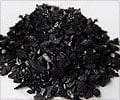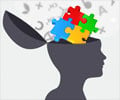Inhalation of carbon dioxide (CO2) triggers emotional distress and a panic response in healthy people.
A new study by researchers at the University of Maastricht, the Netherlands has shown that inhalation of carbon dioxide (CO2) triggers emotional distress and a panic response in healthy people.
The researchers say that their findings may be relevant for a better understanding of the inborn survival-oriented response among certain people, besides providing for further prevention of emotional disorders.According to them, scientists have for long known that small amounts of CO2 provoke a panic reaction in certain anxiety-prone individuals.
They say that the “False Suffocation Alarm theory” that posits that panic attacks and anxiety may derive from the dysfunction of a biological “CO2 sensor”, evolutionarily designed to alert the organism in case of impending death by suffocation, is a result of this knowledge.
During the study, published in PLoS ONE, the researchers set out to test whether such a CO2 sensing alarm system does exist, and whether CO2 effectively controls emotional states.
Sixty-four healthy subjects were assigned to perform four double inhalations of increasing doses of CO2 (from 0 to 35 per cent), and were assessed with self-report questionnaires.
The researchers say that the procedure induced a strictly dose-dependent negative emotion amongst the subjects. The higher the CO2 concentration, the stronger the panic was observed, they add.
Advertisement
Based on their observations, the researchers came to the conclusion that beyond a particular threshold, increased CO2 has an impact on people’s mental state, yielding negative psychotropic properties. They believe that this knowledge may be relevant in the prevention of emotional disorders.
Advertisement
Another significance of the study’s findings, according to the researchers, is that they posit panic as an inborn response, expressing the struggle for life in case of impending death.
They say that the generation of negative emotions from the disruption of a bodily function highlights the close link between physical condition and mental stress
Source-ANI
SPH/C










